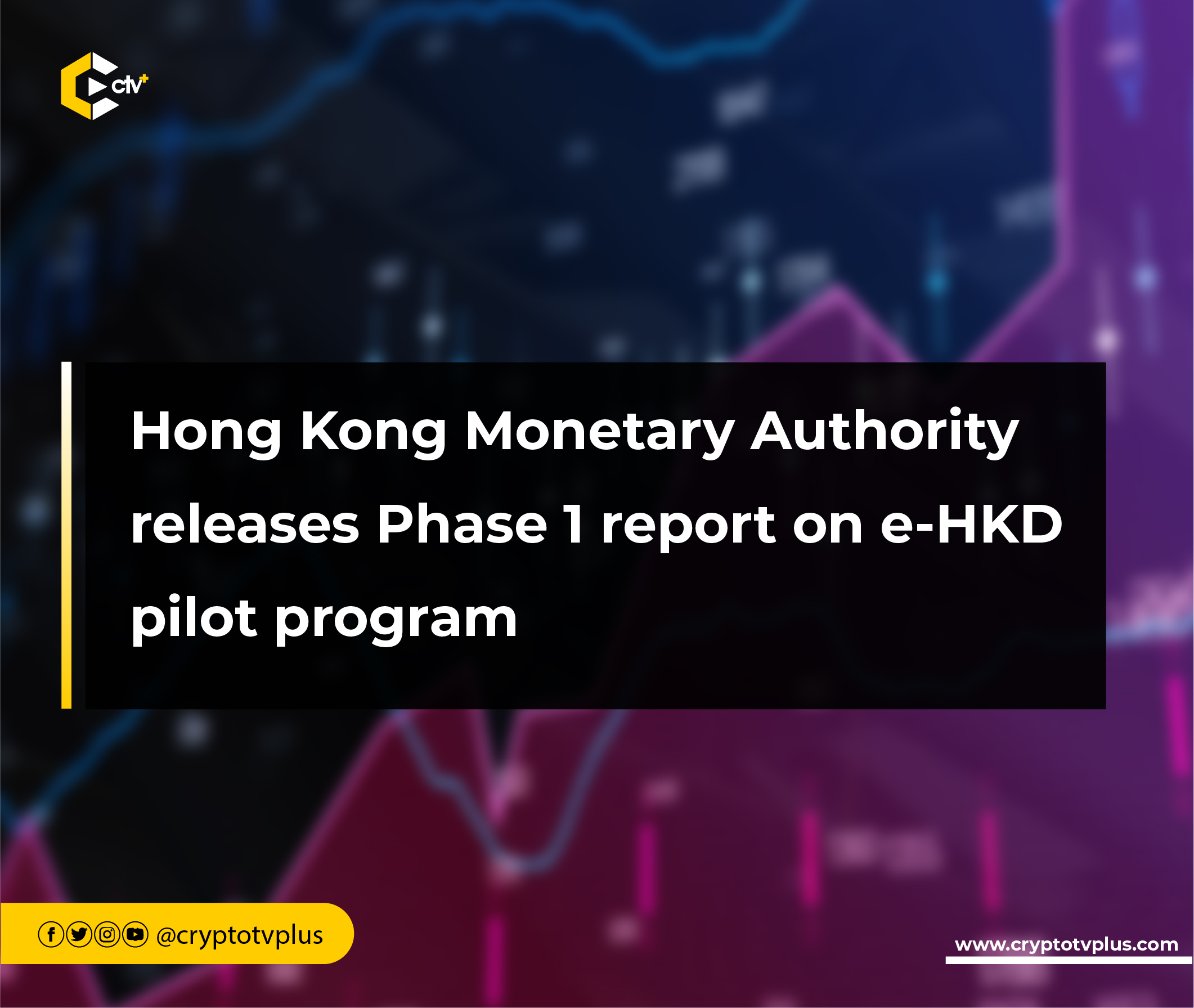News
Hong Kong Monetary Authority releases Phase 1 report on e-HKD pilot program

The Hong Kong Monetary Authority (HKMA) has published the findings of the “e-HKD Pilot Programme Phase 1 Report.”
The report provides insights, discoveries, and the HKMA’s evaluation of 14 pilot projects conducted by 16 participating firms during Phase 1 of the e-HKD Pilot Program.
e-HKD is Hong Kong’s Central Bank Digital Currencies (CBDCs) project designed to leverage digital infrastructure in its financial sector.
Central Bank Digital Currencies (CBDCs) are digital representations of physical cash, under the oversight and regulation of central banks. They constitute a digital form of currency originating from and governed by central banks and are not tied to any tangible commodity.
CBDCs are designed to provide an alternative to cash and other forms of digital currency, such as cryptocurrencies and stablecoins.
They are intended to provide households and businesses with a convenient, electronic form of central bank money, with the safety and liquidity that would entail.
Various categories of CBDCs exist, encompassing wholesale CBDCs designed for interbank transactions and retail CBDCs accessible to consumers and businesses.
Retail CBDCs eliminate intermediary risk, which is the risk that private digital currency issuers might become bankrupt and lose customers’ assets.
In May of this year, the HKMA announced the launch of a CBDC pilot program. This innovative initiative has formed partnerships with various companies, including Alipay Financial Services (HK) Limited, ARTA-Emali HK Limited, Bank of China (Hong Kong) Limited, China Construction Bank (Asia) Corporation Limited, Fubon Bank (Hong Kong) Limited, Ripple Labs, Inc., Giesecke+Devrient, Standard Chartered Bank (Hong Kong) Limited, and Hang Seng Bank Limited.
Furthermore, The Hongkong and Shanghai Banking Corporation Limited, Visa Inc., Industrial and Commercial Bank of China (Asia) Ltd, Mastercard Asia/Pacific Pte. Ltd., The Boston Consulting Group, HKT Payment Limited, and ZA Bank Limited are also part of this collaborative effort.
e-HKD and Hong Kong payment system
According to HKMA, the Phase 1 pilots demonstrated that e-HKD could introduce unique advantages to Hong Kong’s payment ecosystem, with a particular focus on programmability, tokenization, and atomic settlement.
e-HKD holds the potential to enhance transaction speed, cost-efficiency, and inclusivity while also enabling new types of economic transactions.
However, the HKMA acknowledges that these pilots were conducted on a small scale within a controlled environment. Further scrutiny and assessment are needed to ascertain whether these benefits can be scaled for real-life applications.
Although the HKMA has not yet made a final decision regarding the implementation of e-HKD and its schedule, the results and knowledge gained from Phase 1 of the e-HKD Pilot Program will enhance the HKMA’s comprehension and contribute to the enhancement of its approach for potentially integrating e-HKD.
Furthermore, the next phase of the program will focus on exploring additional use cases for e-HKD and delving deeper into select pilots from Phase 1.
Mr. Eddie Yue, who holds the position of Chief Executive at the HKMA (Hong Kong Monetary Authority), stated that the first stage of the e-HKD Pilot Program has extensively examined different creative ways to use e-Hong Kong Dollars (e-HKD).
This exploration has provided valuable insights to the HKMA regarding how e-HKD can bring concrete benefits to both businesses and consumers.
Additionally, these pilot projects have identified various aspects that require further investigation. The HKMA extends its gratitude to all the firms that participated in the program, recognizing their enthusiastic involvement
Read also; Zodia Expands to Hong Kong for Institutional Crypto Investors
























